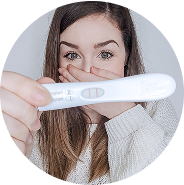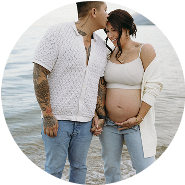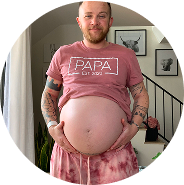Whether you’re experiencing fertility struggles, trying a new treatment, or searching for a donor, there’s someone who has gone through something similar.
Watch our four-part docuseries
Follow the stories of four real couples pursuing parenthood, each in their own unique way.

Your fertility journey is yours alone, but sharing your story can help others facing similar challenges.
Relatable reading
Read real people’s stories about love, loss, and life throughout their fertility journey.

6 IUIs, 2 IVFs and one big blue-eyed miracle: Jordan’s journey

Why I decided to freeze my eggs in my mid-30s: Missy’s journey

An IVF journey after testicular cancer: Maddie’s journey

Our journey: Two moms and an IVF baby

A long-awaited rainbow baby through IVF: Morgan’s journey

Faith over fear: Wendy’s journey

A letter to my daughter: Tanner’s journey

Fighting for a family: Elise’s journey

My journey: Having faith in fertility

A story of secondary fertility: Kirstie’s journey

IVF success after 8 long years of TTC: Marika’s journey

A non-binary journey to “otherhood”: Bennett’s journey

Embracing adoption after IVF: My fertility journey

Offering hope through infertility: Sophie’s journey

Facing the ups and downs of endometriosis and loss: Sherelle’s journey
Stay informed
We’ll send you information to help you understand fertility challenges and treatment options.